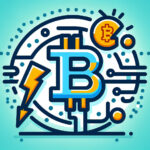Solana developers have introduced two new tools aimed at enhancing mass crypto adoption and enabling crypto transactions across various internet platforms.
The Solana Foundation has rolled out “Actions” and “Blinks,” which allow users to broadcast cryptocurrency transactions to the SOL blockchain from outside native decentralized apps or dapps.
Actions enable users to settle on-chain swaps or transactions from any platform with a URL. This can be executed on social networks and through QR Codes. Blinks builds upon a feature called Frames to facilitate shareable links for supported Actions.
Jon Wong, head of ecosystem engineering at Solana Foundation, explained that Actions and Blinks will enable sending funds directly from wallets like Phantom, NFT acquisitions on Tensor, voting on Realms proposals, subscribing to Acess Protocol newsletters and content, and crypto swaps on Jupiter exchange.
“We must reach the ‘first billion’ users where they already are—on their favorite apps and websites,” Wong said, referring to solutions for onboarding a billion people to crypto.
Other projects, including Backpack, Cubik, Helius, Helium, Sanctum, and Truffle, also plan to test Solana’s Actions and Blinks as these tools become available to end-users.
Potential Risks
Since its inception, mainstream integration has been a key focus of the decentralized ecosystem. Developers have long debated how to safely expand on-chain utility to larger user bases. Some startups have integrated with Web2 entities like PayPal and formed partnerships with Visa. However, many believe true viral adoption should occur through blockchain products tailored to market demand.
Actions and Blinks could be a gateway to achieving this, but concerns exist due to the presence of bad actors and scammers in the digital asset space.
Scam links are going to be even more accessible this cycle. Imagine the X account hacks. It’s going to get wild, and it will all happen on Solana.
Allowing any website to serve as a launch point for crypto transactions on the Solana blockchain raises the risk of phishing campaigns that mimic genuine platforms. Shareable links enabled by Blinks may also encourage hackers to spread malicious URLs that compromise private keys and drain assets.
As a solution, development shop Dialect has announced a collaboration with Solana, Phantom, and other protocols for a public registry of Actions. It’s unclear if a mitigation strategy for Blinks is also in progress.
Solana’s Growth and Challenges
In the past year, Solana has solidified its position among the top blockchains, known for its low transaction costs and easy-to-ship token standards. These traits have attracted proponents who believe the network is primed for mass adoption. However, this has also strained the network, causing occasional downtime.
Much of the congestion is attributed to memecoins, which have seen a surge in activity. Despite this, adoption has reportedly increased monthly active SOL addresses to nearly 42 million, a new all-time high.
Developers have implemented fixes to bolster the network’s ability to maintain uptime consistently. In the long term, on-chain improvements and products like Actions may be crucial for Solana and broader crypto adoption.
This strikes me as an order of magnitude more important and likely to gain significant adoption in the near term than any other major Solana initiative I’ve seen before.
Stay updated with more news on Global Crypto News.
























